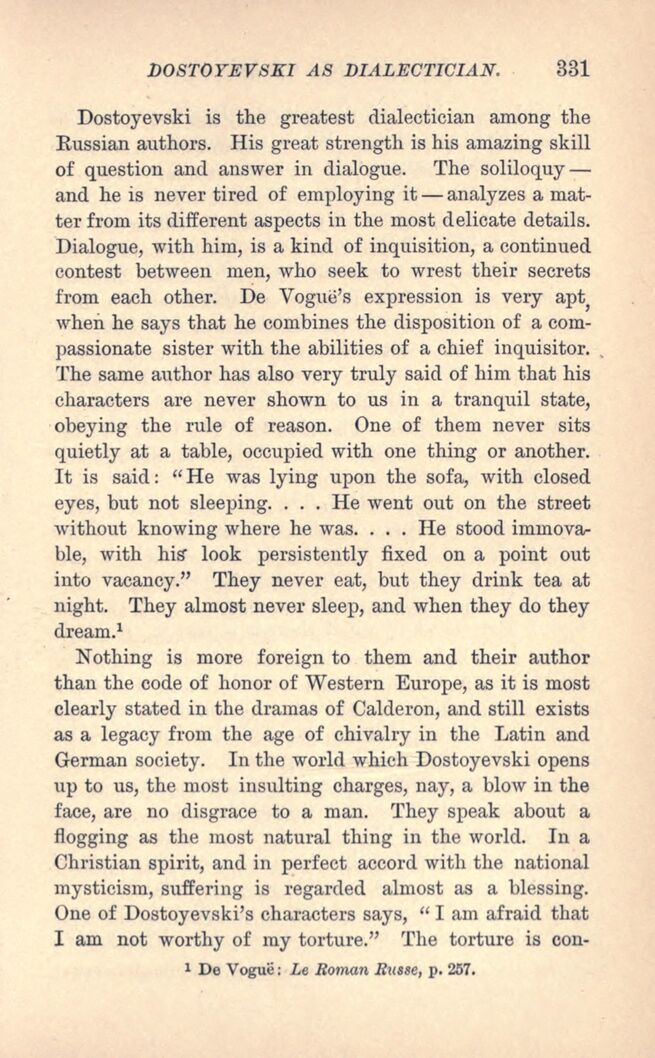
Full resolution (JPEG) - On this page / på denna sida - Impressions of Russian Literature - VI

<< prev. page << föreg. sida << >> nästa sida >> next page >>
Below is the raw OCR text
from the above scanned image.
Do you see an error? Proofread the page now!
Här nedan syns maskintolkade texten från faksimilbilden ovan.
Ser du något fel? Korrekturläs sidan nu!
This page has been proofread at least once.
(diff)
(history)
Denna sida har korrekturlästs minst en gång.
(skillnad)
(historik)
Dostoyevski is the greatest dialectician among the
Russian authors. His great strength is his amazing skill
of question and answer in dialogue. The soliloquy —
and he is never tired of employing it — analyzes a
matter from its different aspects in the most delicate details.
Dialogue, with him, is a kind of inquisition, a continued
contest between men, who seek to wrest their secrets
from each other. De Voguë’s expression is very apt,
when he says that he combines the disposition of a
compassionate sister with the abilities of a chief inquisitor.
The same author has also very truly said of him that his
characters are never shown to us in a tranquil state,
obeying the rule of reason. One of them never sits
quietly at a table, occupied with one thing or another.
It is said: “He was lying upon the sofa, with closed
eyes, but not sleeping.... He went out on the street
without knowing where he was.... He stood
immovable, with his look persistently fixed on a point out
into vacancy.” They never eat, but they drink tea at
night. They almost never sleep, and when they do they
dream.[1]
Nothing is more foreign to them and their author
than the code of honor of Western Europe, as it is most
clearly stated in the dramas of Calderon, and still exists
as a legacy from the age of chivalry in the Latin and
German society. In the world which Dostoyevski opens
up to us, the most insulting charges, nay, a blow in the
face, are no disgrace to a man. They speak about a
flogging as the most natural thing in the world. In a
Christian spirit, and in perfect accord with the national
mysticism, suffering is regarded almost as a blessing.
One of Dostoyevski’s characters says, “I am afraid that
I am not worthy of my torture.” The torture is
<< prev. page << föreg. sida << >> nästa sida >> next page >>